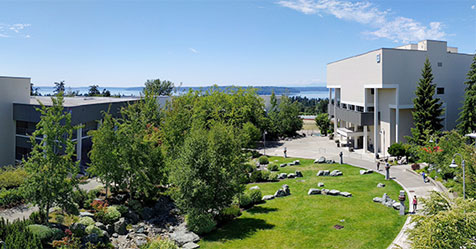A safe learning environment for everyone is at the heart of a joint statement issued last week. In the Nov. 16, 2018, letter, leaders of Washington’s 50 major colleges and universities reaffirmed their commitment to addressing campus sexual harassment and violence.
“Students cannot benefit from, and faculty and staff cannot deliver, high-quality education if their personal safety and well-being are being violated. Therefore, together we will continue to prioritize sexual harassment and sexual violence prevention and response efforts on our campuses,” the statement reads in part.
Highline President John Mosby joined his colleagues in supporting the statement. Jan Yoshiwara, executive director of the State Board for Community and Technical Colleges, signed on behalf of Washington’s community and technical college presidents.
The full statement follows and is available on the Council of Presidents website.
Our country is currently in the midst of difficult but important conversations about sexual harassment and violence. As leaders of Washington’s 50 major public and private, not-for-profit colleges and universities, we reaffirm our commitment to the safety of our students, faculty, and staff and to creating an inclusive educational environment where every student has the opportunity to be successful.
Students cannot benefit from, and faculty and staff cannot deliver, high-quality education if their personal safety and well-being are being violated. Therefore, together we will continue to prioritize sexual harassment and sexual violence prevention and response efforts on our campuses. This includes assessing our community members to gauge the prevalence of sexual harassment and assault on campuses, as well as their knowledge of available resources; improving collaboration on campus sexual violence issues among institutions of higher education and between institutions of higher education and law enforcement; regularly reviewing and updating our individual conduct codes and adjudication processes; providing training about sex and gender-based harassment and violence and trauma-informed response information; and taking into account relevant due and fair process considerations for members of our campus communities while learning from our colleagues who are addressing these issues through student- and administrative-led activities.
The result of these efforts, as well as greater societal attention to this issue, has been an increase in the number of individuals — students and employees — who report having been victimized. We must continue to foster a climate where all individuals feel safe seeking assistance, and can expect a fair and equitable response to their concerns.
We know there remains more work to do. Investigation and prevention efforts are resource-intensive and require on-going training; our campus needs vary by institution. We continue to learn from each other about what efforts are most effective so that we can offer cost-effective, evidence-based services and programs, and we remain committed to fair, equitable and timely investigations when complaints are received.
Colleges and universities are places of learning and discovery that lead to the promotion and advancement of knowledge that benefits us all. It remains our goal to create a safe learning environment for everyone in our communities.
Sexual Assault Policy and Prevention at Highline College
Highline College prohibits rape, acquaintance rape, domestic violence, dating violence, sexual assault, and stalking for all students and employees. Rape and all forms of sexual assault and misconduct are violations of Highline’s Code of Student Conduct and the Revised Code of Washington (RCW) 49.60.030.
To learn more, and how to report such offenses, visit the Sexual Assault Policy and Prevention page.


